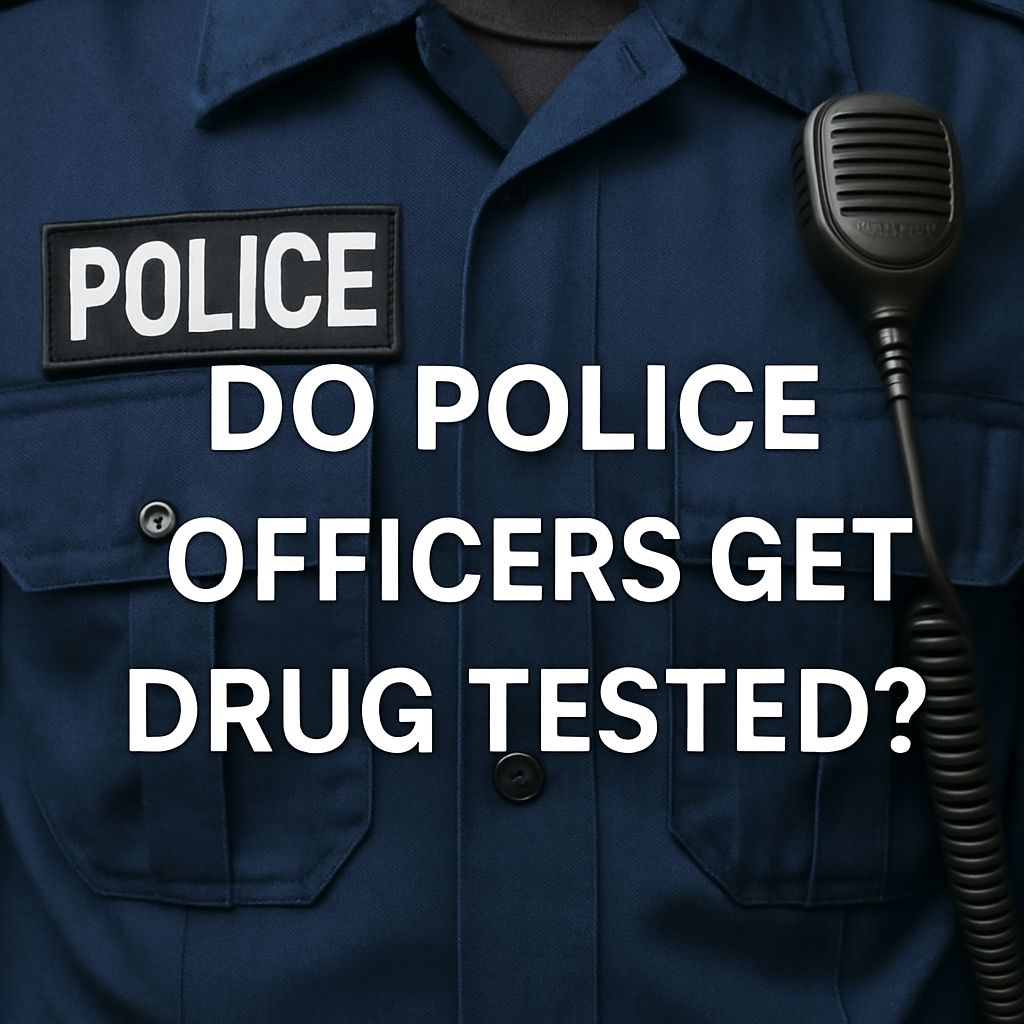
Do Police Officers Get Drug Tested?
Do Police Officers Get Drug Tested? Inside Law Enforcement Screening
It’s a question that sparks a lot of curiosity: do police officers get drug tested? From high-stress patrols to undercover assignments, law enforcement carries immense responsibility. Ensuring officers remain fit for duty isn’t just about physical fitness or firearms training—it often involves routine drug screening.
In this post, we’ll dive deep into how and when police agencies test their staff, what substances they’re looking for, and how practices differ around the world. Along the way, we'll look at real-world examples—like the fired NY trooper who sued after a positive test and the Met officer who lost five years’ pay for refusing to comply. Ready to learn if your local beat cop faces the same tests you do? Let’s go.
Understanding Police Drug Testing Policies
Most departments maintain clear policies stating if and when new recruits and active officers must undergo testing. The primary goal is twofold: deter substance abuse and protect public safety.
Every agency has its own handbook, but nearly all begin with pre-employment screening. Yes, before hitting the streets, recruits must answer: do police get drug tested? The answer is a resounding yes.
After hiring, policies vary: some require periodic screening, others reserve testing for cause—such as after an accident or on suspicion of impairment. In one high-profile case, a New York state trooper who tested positive was fired and later sued the NY State Police over his dismissal and testing procedures (read the full story).
How Often Do Police Officers Get Drug Tested?
Frequency can range from annual checks to random, unannounced tests. If you’re wondering how often do police officers get drug tested, the simple answer is “it depends.” Factors include:
- Department size: Larger agencies often have the budget for annual or semi-annual tests.
- Union contracts: Collective bargaining agreements may cap the number of routine tests.
- State laws: Some states mandate a minimum frequency for safety-sensitive roles.
In many U.S. agencies, officers face at least one physical and drug screen each year. Others rely on policy guidelines to trigger additional tests—more on that next.
Random and Regular Testing Practices
The topic of do police officers get random drug tests often comes down to deterrence. Random testing programs select officers on a rotating basis, making it impossible to predict who’s “safe” from screening on any given day.
Random screens typically cover a panel of substances—THC, amphetamines, cocaine, opiates, and PCP. Refusal can carry the same penalties as a positive result, including termination. In London, a Metropolitan officer refused a test and ultimately lost his job and five years of back pay before later winning an appeal (learn more here).
On the flip side, some jurisdictions focus on regular testing, such as every 6 or 12 months. Combined programs—where officers get both scheduled and random checks—are common in departments keen on zero-tolerance enforcement.
Drug Testing for Specific Substances
Curious if do police officers get drug tested for weed? Despite growing cannabis legalization, most agencies still ban THC. Testing panels usually flag metabolites that indicate use within a window of days to weeks.
Beyond marijuana, law enforcement agencies look for:
- Cocaine
- Amphetamines and methamphetamine
- Opiates (including prescription painkillers)
- Phencyclidine (PCP)
- Novel synthetic drugs (where detectable)
Detection windows vary. For an overview of how long common drugs remain in your system, see our Drug Detection Times guide.
Do Police Officers Get Drug Tested Regularly—or Only When Suspicion Arises?
You may hear that testing only happens “for cause.” In reality, most departments blend both approaches. If an officer is involved in an on-duty vehicle accident or exhibits behavior suggesting impairment, a “for cause” test is mandatory.
But many agencies also schedule periodic screens to meet accreditation standards. That’s how they answer the question do police officers get drug tested regularly—with a clear policy and calendar of testing dates.
International Perspectives: Do Australian Police Get Drug Tested?
Across the globe, testing varies. In Australia, for example, major state police forces typically require drug and alcohol screening at recruitment and may conduct random tests in specialized units.
When locals ask do Australian police get drug tested, the response often directs them to specific state regulations. While not universal, more agencies are adopting random testing to align with best practices seen in the U.S.
Conclusion
So, do the police get drug tested? Absolutely. From pre-employment screens to random checks and for-cause testing, agencies use multiple strategies to ensure officers remain substance-free on the job.
Whether you’re a recruit wondering how often do police get drug tested or a community member curious about law enforcement standards, understanding these policies promotes transparency and trust.
For more insights on workplace drug testing and how detection windows work, explore our guide to companies that drug test and our comprehensive Synthetic Urine guide. Stay informed, stay safe.
Content Disclaimer
This blog post is intended for educational and informational purposes only. Nothing in this content should be interpreted as encouragement, advice, or instruction to use our products in any fraudulent or illegal manner.
All products sold are for novelty, fetish, research, or calibration use only. It is the customer’s responsibility to comply with all local, state, and federal laws.
